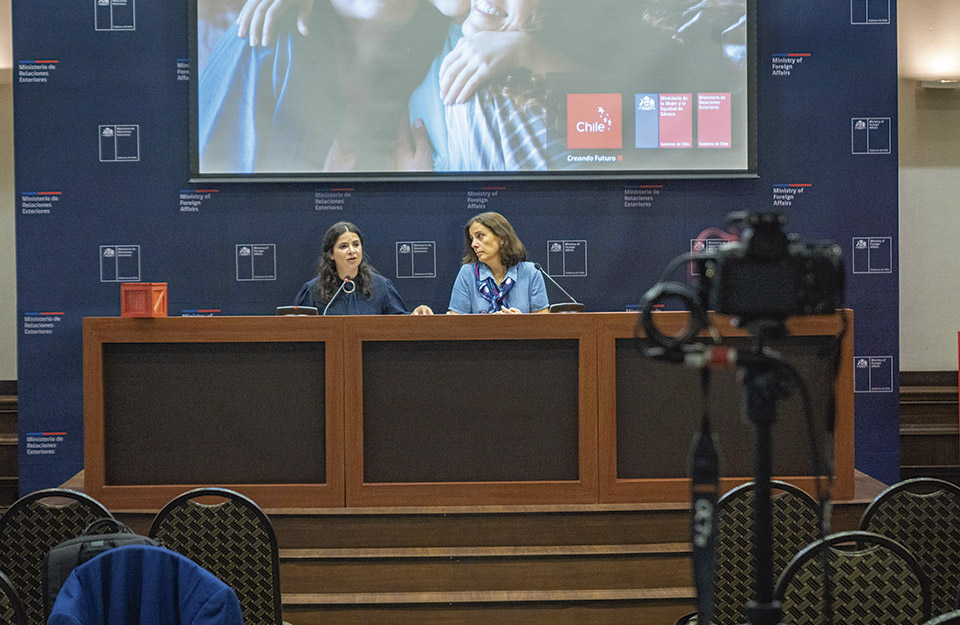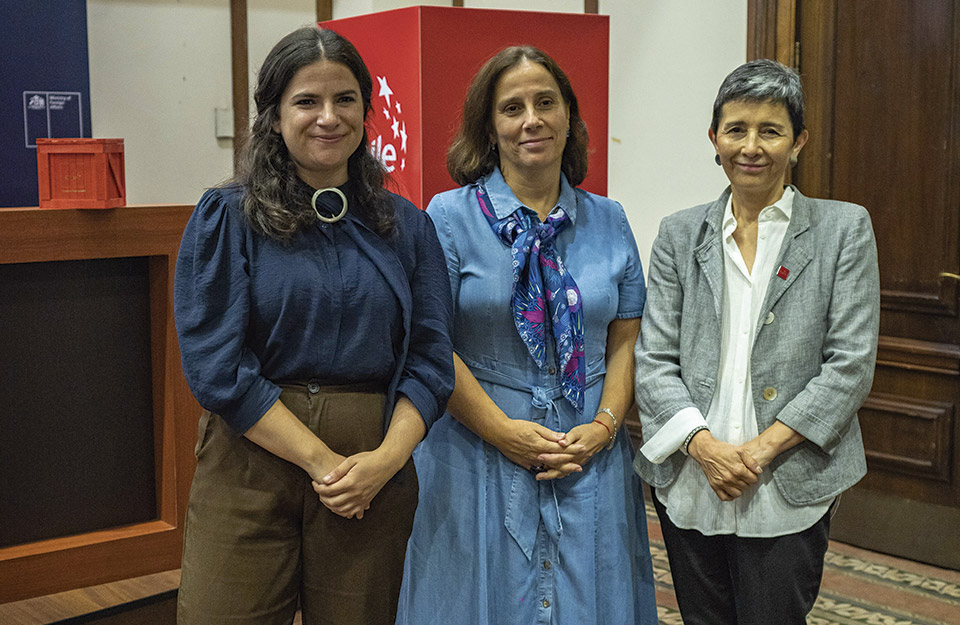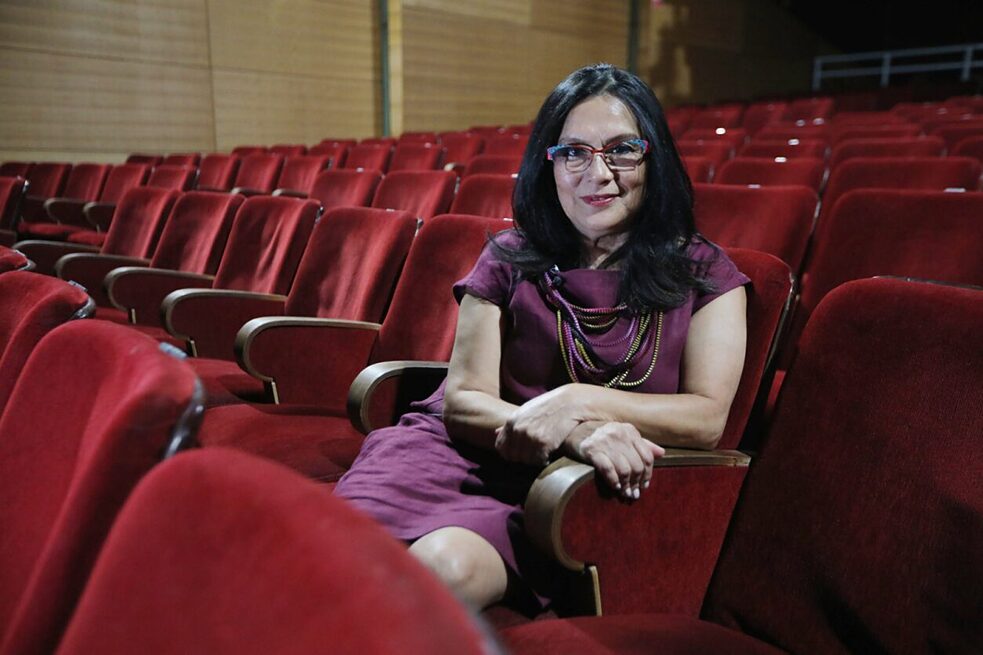
In the framework of 8M, Fundación Imagen de Chile invited the Ministers of Women and Gender Equality, Antonia Orellana, and of Foreign Affairs, Antonia Urrejola, to an exclusive conference with foreign correspondents. Both evaluated the progress and priorities of their portfolios for 2023.
Tuesday, March 07, Santiago, Chile-. In order to deepen the advances in gender equality, Fundación Imagen de Chile invited the Ministers Antonia Orellana, of Women and Gender Equality, and Antonia Urrejola, of Foreign Affairs, to an exclusive press conference for the international media, on the eve of the first anniversary of the feminist government of Gabriel Boric, on March 11.
In her opening remarks, the executive director of FICH, Rossana Dresdner, emphasized Chile's positioning as an internationally recognized regional leader in equality, one of the assets that make up the country brand.
"Among other strengths that make us proud and distinguish us worldwide, gender equity is a substantial part of our country brand and at Imagen de Chile we have set out to make this issue one of the pillars of our international positioning."

Minister Orellana: "Our objective as a government is to work to ensure that the law is complied with".
The Minister of Women and Gender Equality described that the feminist government of Gabriel Boric has as background the gradual protagonism of women in politics in various fields, a process that deepens with the change of millennium with milestones such as the election of Michelle Bachelet as the first woman President of Chile (2006); the enactment of Law 20.418, which authorized the distribution of the emergency contraceptive pill (2010); the student protests led among others by with the current government spokesperson Camila Vallejo as one of its main referents (2011); the electoral reform that established gender quotas to increase the presence of women in the National Congress (2015) or the law that decriminalized abortion on three grounds, during the second term of Michelle Bachelet (2018).
"All this background generated the conditions to reach the parity government of Gabriel Boric, which has been present in the designations made by the President in all the spaces of the State and has also been manifested in the rapid progress of discussions on matters of co-responsibility and gender violence," he said.
She also emphasized the need to address those gaps that many women, especially the younger generations, perceive as an expression of inequality: "more than innovating new rights, as a government we will work to ensure that what is in the law is complied with and has its expression or correlation in the daily lives of women".
In this sense, the priority of the immediate legislative agenda is the approval of the comprehensive law on violence against women, to enshrine the right to a life free of violence. The project was sent in 2017 by the government of Michelle Bachelet and reentered urgently in this mandate was with indications to strengthen it and adapt it to the current moment, with a budget increase of 18%.
Among the concrete advances, Orellana referred to the Law on Parental Responsibility and Effective Payment of Child Support Pensions, which is in force since 2019, but which today deepens in effective sanctions for men entered in the register of debtors, with access to bank accounts and pension funds, among other measures.
The Minister also highlighted the inclusion of the gender perspective in the Pension Reform sent by the Government to Congress: "Unlike the previous bills sent, the current one takes into account the gender gap between women and men".
FEMINIST FOREIGN POLICY
In the area of International Relations, Foreign Minister Antonia Urrejola made an assessment of the Feminist Foreign Policy implemented by the Government, through initiatives to combat inequalities.
"The strategic objective of the Feminist Foreign Policy is to get men and women to contribute as a team in all areas of our Foreign Ministry. Next week we will launch a formal document to promote these actions that have been developed from a cross-cutting and all-encompassing perspective, with the principles of the Feminist Foreign Policy, for which we have contacted different countries that already have an advanced path," she said.
Antonia Urrejola highlighted Chile's leading role in the presence of women in diplomatic missions abroad.
"We have 27 women ambassadors, the best rate in Latin America. Today, as a result of the feminist foreign policy implemented by the current government, 28% of Chilean legations abroad have a female ambassador, leading Latin America, surpassing Colombia (26.7%), Mexico (23.3%) Argentina (19.2%) and Brazil (10.7%).






